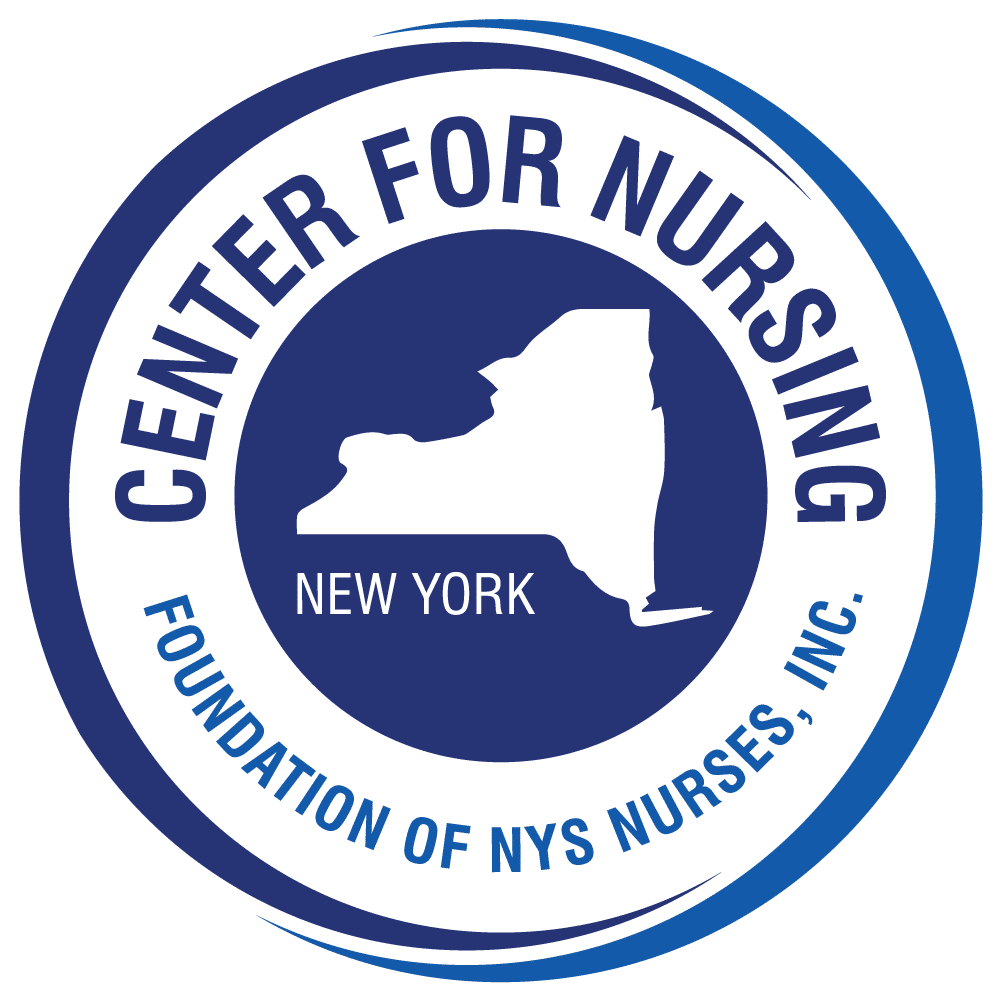Mission, Vision & Values
Mission
The Center for Nursing is a New York State non-profit organization committed to supporting professional nurses and nursing students through mentoring, educational advancement, and promoting population-focused research and evidence-based practices to improve the knowledge and health care of individuals and communities in New York State.
Vision
The Center for Nursing is to be widely recognized as a valuable resource that curates the past, cultivates the present, and crafts the future of nursing in New York State.
Values
- Collaboration – working together and connecting with others
- Communication – engaging in the exchange of information
- Inclusiveness – respect for others and opennes to new ideas
- Caring – supporting and advocating for the profession and the health of the public
- Professionalism – excellence, empowerment, and dedication
The Center for Nursing addresses its mission through three program centers:
The Bellevue Alumnae Center for Nursing History (CNH) is dedicated to preserving and promoting understanding of the profession’s magnificent services to society. As a component of this discipline, an archives program preserves and makes available for public use archival records and manuscript collections which document nursing in New York State. The Archives program is committed to:
- Appraising, collecting, arranging, describing, preserving, and making available the archival records of selected nursing organizations;
- Serving as a repository for other professional nursing records of enduring value in New York;
- Providing adequate facilities for the retention, processing, preservation, and research use of these records;
- Assisting in the development and implementation of a documentation strategy to chronicle the history of professional nursing in New York;
- Providing consultation to groups and individuals on the preservation of records which document the nursing profession in New York;
- Promoting the use of archival records and manuscript collections in the scholarly study of nursing and health in society.
The CNH has other resources, including 1) electronic guides to records, which provide access to finding aids by name or collection number; 2) an oral history program (life stories of nurses whose careers contributed to the rich history of nursing in New York); and 3) a guide for preserving nursing’s historic treasures.
The St. Luke’s Hospital School of Nursing Alumnae Center for Public and Professional Education (CPE) is dedicated to improving health care, health consciousness and public understanding and utilization of professional nurses. The CPE:
- Develops informational materials about nursing and health for public dissemination;
- Promotes direct public-professional contact through health education programs provided by professional nurses;
- Promotes public access to information about health and nursing via the media and audiovisual materials;
- Monitors public perceptions of and responses to services provided by the nursing profession and its members.
The Cathryne A. Welch Center for Nursing Research (CNR) is dedicated to improving nursing practice through the facilitation and the conduct of nursing research and use of the best available evidence. The work is directed and conducted by a Steering Committee which collaborates with other organizations in establishing and implementing the nursing research agenda for New York State. It advances public and professional recognition and understanding of nursing research and the application of research evidence to practice. The Steering Committee also secures and disseminates funding for nursing research and utilization projects, conducts nursing research, and promotes careers in nursing research.
CNR confers three annual research awards:
- Distinguished Nurse Researcher Award
- Rising Nurse Researcher Award
- Rona F. Levin Evidence-Based Practice Award
To facilitate and promote careers in nursing research, the Center for Nursing, in collaboration with the American Nurses Association – New York (ANA-NY), supports a Research Fellow for a three-year term. During this term, the Fellow completes an individualized research project under the mentorship of a Steering Committee member.
History of the Veronica M. Driscoll Center for Nursing
Veronica M. Driscoll
1926-1994
Upon her retirement in 1979, the Foundation’s corporate headquarters was designated the Veronica M. Driscoll Center for Nursing. Dr. Driscoll was a 1948 graduate of St. Catherine’s Hospital School of Nursing in Brooklyn, NY. She went on to receive a Baccalaureate degree from St. John’s University, a Masters’ degree in guidance and personnel administration from New York University, and a Doctoral degree from Teachers College, Columbia University.
After holding various nursing positions at St. Catherine’s Hospital, Dr. Driscoll joined the New York State Nurses Association (NYSNA) staff in 1960 in its Counseling and Placement program. In 1969 she became the Executive Director of NYSNA, a position she held until her retirement in 1979. In 1975 she also became Executive Director of the newly formed Foundation of NYSNA. In the course of her career at NYSNA, she helped New York nurses attain higher salaries, employment benefits, and improved practice environments. As Executive Director of NYSNA, she advocated and promoted the collective bargaining power of nurses to shape legislative action and their status as professional nurses. She was active in the 1972 revision of New York State’s Nurse Practice Act—this definition of nursing remains to this day. Driscoll’s “A Blueprint for the Education of Nurses in New York State” advocated for a mandatory baccalaureate degree for professional nursing practice and an associate degree for general nursing practice. This issue is both controversial and pertinent.


